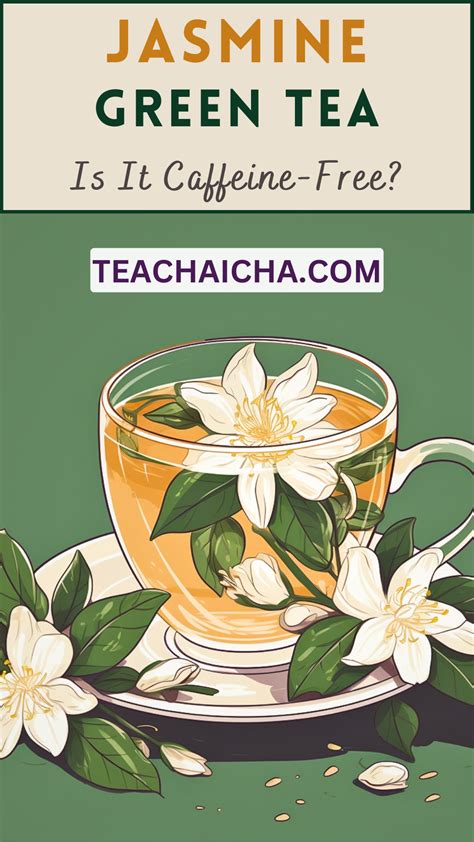Caffeine is a widely discussed topic in the world of tea, and for good reason. It's a stimulant that can have a significant impact on our bodies, and understanding its effects is crucial for tea enthusiasts. When it comes to jasmine tea, a floral and delicate variety, the conversation around caffeine is often nuanced. Here are six facts about caffeine in jasmine tea that will help you make informed decisions about your tea consumption.
Jasmine tea, like all tea varieties, contains some amount of caffeine. However, the amount of caffeine in jasmine tea can vary greatly depending on several factors, including the type of tea leaves used, the cultivation methods, and the brewing process. Generally, jasmine tea contains less caffeine than other types of tea, such as black or green tea. On average, a cup of jasmine tea may contain anywhere from 20-40 milligrams of caffeine.
The Caffeine Content of Jasmine Tea Leaves
The caffeine content of jasmine tea leaves is influenced by the type of tea plant used. Jasmine tea is typically made from the leaves of the Camellia sinensis plant, which is the same plant used to make green, black, and oolong teas. However, the caffeine content can vary depending on the specific cultivar and growing conditions.

For example, tea plants grown in high-altitude regions tend to have lower caffeine content than those grown in lower-altitude regions. Additionally, tea leaves that are harvested during the early stages of growth may have higher caffeine content than those harvested later in the season.
How Brewing Methods Affect Caffeine Content
The brewing method used to prepare jasmine tea can also impact the caffeine content of the final product. Factors such as water temperature, steeping time, and tea-to-water ratio can all influence the amount of caffeine that is extracted from the tea leaves.

For example, using boiling water and steeping the tea for an extended period can result in a higher caffeine content. On the other hand, using cooler water and steeping the tea for a shorter period can result in a lower caffeine content.
The Impact of Caffeine on Jasmine Tea's Flavor Profile
The caffeine content of jasmine tea can also impact its flavor profile. Caffeine is a bitter compound that can contribute to the overall bitterness of the tea. However, the floral and delicate flavor of jasmine tea can often mask the bitterness of the caffeine.

In fact, some tea enthusiasts argue that the caffeine content of jasmine tea can enhance its flavor profile by adding a subtle brightness and depth to the tea. However, others may find that the caffeine content detracts from the tea's delicate flavor.
Health Benefits of Jasmine Tea's Caffeine Content
The caffeine content of jasmine tea can also have health benefits. In moderation, caffeine can increase alertness and focus, improve mental performance, and even boost metabolism.

However, excessive caffeine consumption can lead to negative side effects such as jitteriness, anxiety, and insomnia. Therefore, it's essential to be mindful of the caffeine content of jasmine tea and consume it in moderation.
Conclusion
In conclusion, the caffeine content of jasmine tea is a complex topic that is influenced by various factors, including the type of tea leaves used, cultivation methods, brewing process, and flavor profile. While jasmine tea generally contains less caffeine than other types of tea, its caffeine content can still have a significant impact on its flavor and health benefits.

As a tea enthusiast, it's essential to be aware of the caffeine content of jasmine tea and consume it in moderation. By doing so, you can appreciate the delicate flavor and health benefits of this exquisite tea variety.
Share Your Thoughts
We'd love to hear from you! What's your experience with jasmine tea and its caffeine content? Do you have any favorite brewing methods or flavor profiles? Share your thoughts in the comments below!






What is the average caffeine content of jasmine tea?
+The average caffeine content of jasmine tea is around 20-40 milligrams per cup.
How does the brewing method affect the caffeine content of jasmine tea?
+The brewing method can affect the caffeine content of jasmine tea. Using boiling water and steeping the tea for an extended period can result in a higher caffeine content.
What are the health benefits of jasmine tea's caffeine content?
+The caffeine content of jasmine tea can have health benefits such as increasing alertness and focus, improving mental performance, and boosting metabolism.
